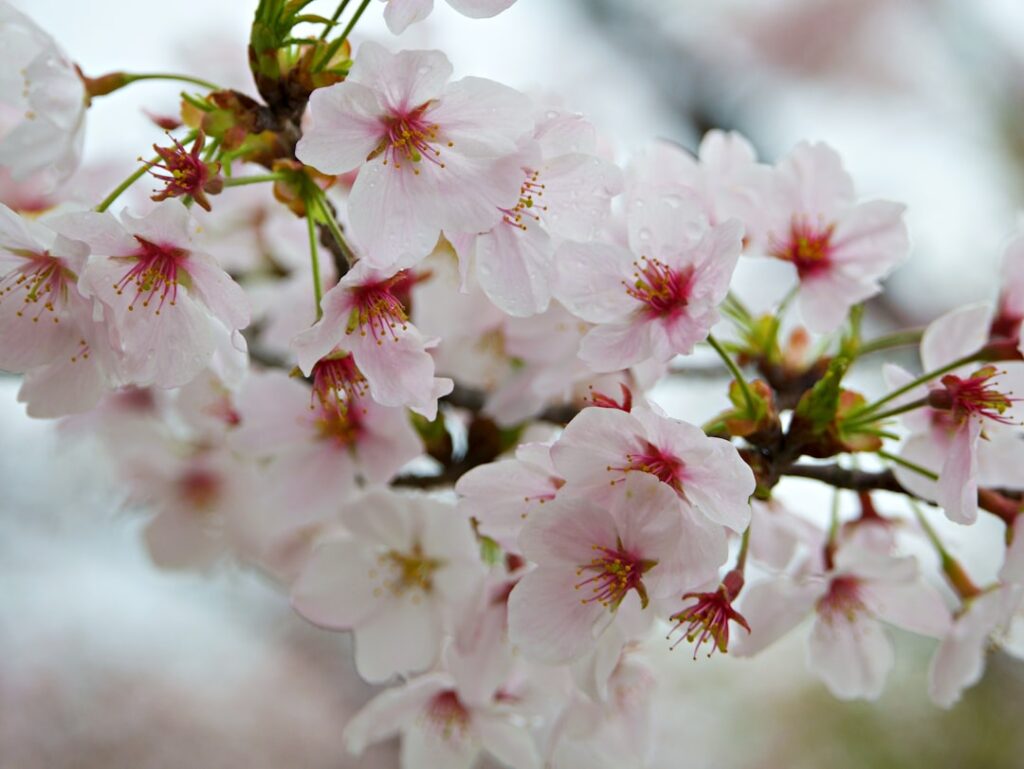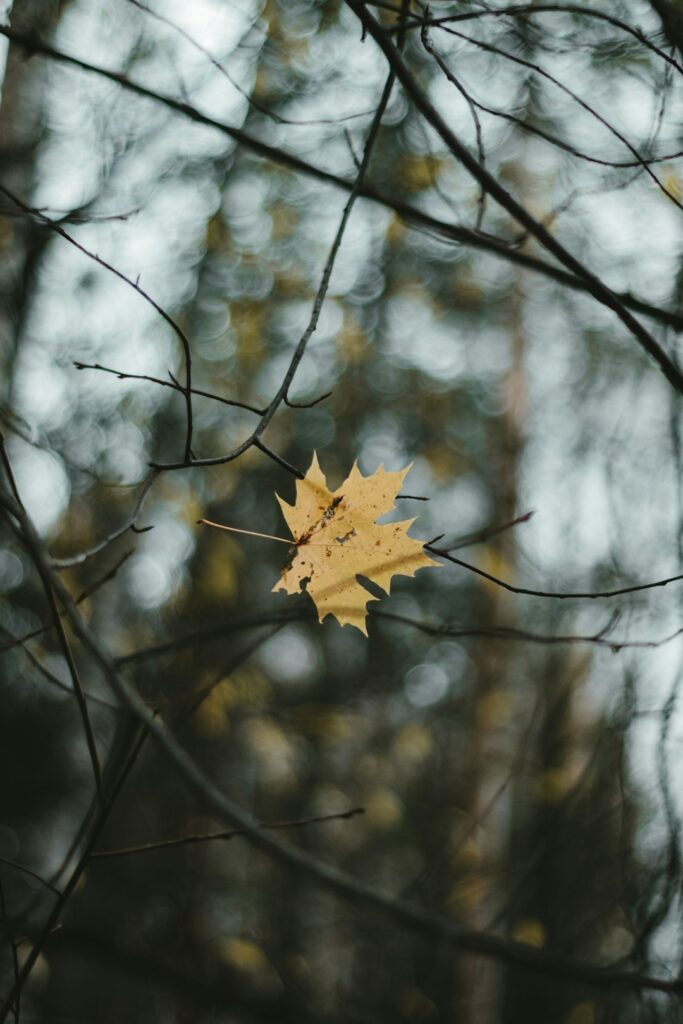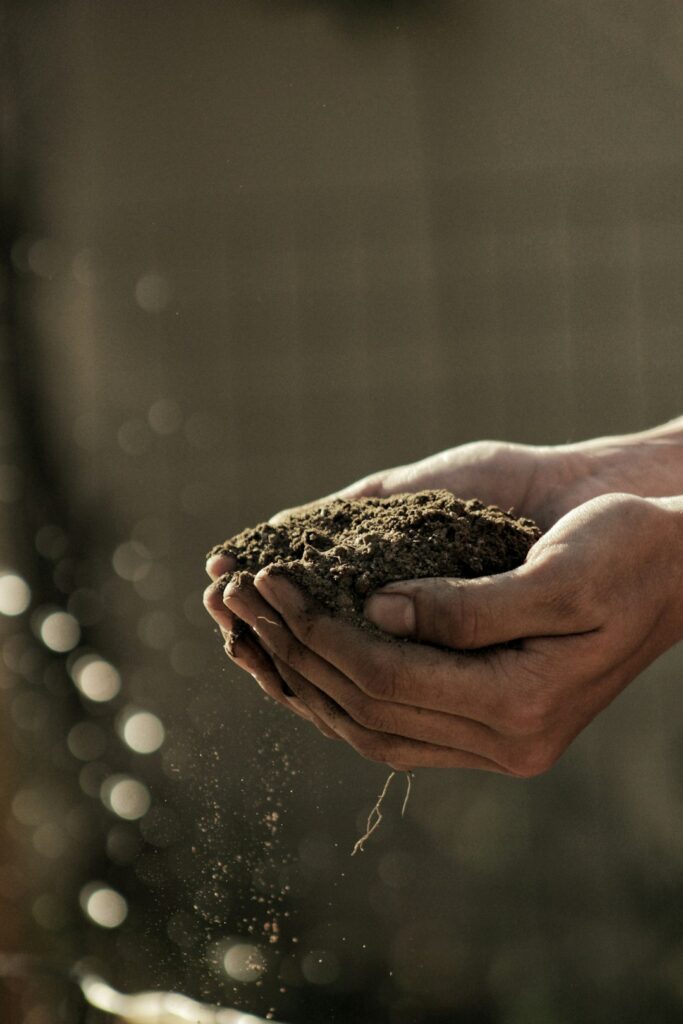The Courage to Compost

Image credit: Gabriel Jimenez via Unsplash
1. Spring Is Rising
Spring is in riotous bloom — blossom thick on the trees, birdsong stitched into every morning. Life, irrepressible, insists on returning.
And yet, many of the systems that govern our lives feel brittle, hollowed out, or in active decline. ESG and sustainability are under open attack — dismissed as woke ideology or elite delusion. Development budgets have been gutted. Wars grind on. Democracies teeter. And nature’s rhythms are breaking down — the spring we are enjoying in the north arriving weeks early, nature’s signals scrambled in a warming world. Are we truly listening?
This is not business-as-usual. It’s the great unravelling.

2. What Must Die
And yet — in this rupture lies an opening. Spring reminds us: all new life grows from the compost of the old. Renewal is not a return. It is a rebirth.
But rebirth demands death.
Not collapse for collapse’s sake, but the kind of necessary letting go that clears space for something wiser. We are a culture obsessed with extending life — billions are spent on health systems to sustain us longer into old age no matter the quality. And we apply the same logic to our economic systems: clinging to outdated models, institutions, and illusions of control. I wonder how much of my own and our collective sustainability work over the last 30 years has focused on making the old more efficient rather than daring to imagine the new?
3. The Reckoning Inside the Movement
Many in the movement are reflecting with honesty. But transformation begins at the individual level — and it requires courage. Do we really want change? Or is it something we demand of others while we remain comfortable ourselves? Too often, we speak of transformation while clinging to our roles, our influence, our privilege. Headlines in recent years celebrated million-dollar sustainability appointments as a sign the movement had ‘come of age’ — but it was one of many alarm bells for me that instead highlighted how co-opted the movement had become by a system intent on extending its own life. We optimise systems that were never designed to serve life — and call it progress.
This is not a pause in progress — it’s a rupture. The real crisis in sustainability is our reluctance to face the uncomfortable truth: that the system we’ve worked so hard to change may never have been fit for purpose.
4. The Courage to Compost
Our desperate holding on — to growth, to power, to permanence — prevents the emergence of the new. It’s as if we’re clinging to the leaves of autumn, hoping that if we hold tight enough, they won’t fall. But they must. And in that fall — in the letting go — the soil is made ready for spring.

We’ve built an economic system that preserves and grows capital at all costs. We elevate the wealth holder — often cloaked in the image of the innocent pensioner — as the ultimate stakeholder. But nothing is guaranteed. Our economic and political systems, for all their complexity and messiness, are still just a human invention. They can be reimagined. They must be.
5. A Bridge Between Worlds
Now nine months old, Ostara emerged from the stillness of winter with a renewed sense of purpose. We spent time listening — to the land, to our partners, and to the moment itself. What became clear is where we could be most helpful is to act as a bridge between the dominant systems we have learned to navigate and the promising, often overlooked alternatives taking root at the edges.
We exist to create spaces where new possibilities can take form — where finance professionals, community leaders, artists, and policy-makers can come together in dialogue not to fix the system, but to reimagine it. These are not abstract conversations. They are rooted in the real, in place, in relationship.
Our early work focuses on two vital frontiers: transforming global value chains and reimagining nature finance. While value chains operate as structural conduits of the current system, reimagining nature finance invites us to challenge the deeper economic logic itself — a broader rethinking of how capital could serve life. In both spaces, we’re beginning to see signs of willingness among some leaders to slow down, to reflect, and to ask deeper questions than have typically been permitted.
We don’t claim to hold answers. We are cultivating some shared soil — humbly, in co-creation with others and with the Earth — in service of what is longing to be born. The compost is forming. The conditions for new growth are ripening.

6. The Work Ahead
This winter, one book fed me more than most — Dougald Hine’s At Work in the Ruins. In it, he argues that we need to stop talking about climate change in the way we have been — not because it doesn’t matter, but because the frameworks we use often insulate us from the depth of response required.
“The real work is not about better science or improved economics, but about stepping into the unknown, into the story that hasn’t yet been written.”
That story won’t emerge from more models or metrics. It will come through compost — through grief, through courage, through the art and imagination we’ve long pushed to the margins. But to make compost, we must make death an ally.
This is the deeper invitation of our time. Not more evidence or improved models — but art, creativity, vision, and imagination. A willingness to listen for the story that wants to be told. And the courage to let the old one rot.
Because it is in the compost that the real growth begins — and from that rich soil, the seeds of something entirely new can be planted.
So we ask:
What part of the old story are you still carrying? What might you lay down to make space for what is trying to grow? What seed of transformation is quietly waiting in your care?
This is not a time for small tweaks. It is a time for deep reimagining. For re-rooting. For stepping beyond the tyranny of urgent action into the courage of deeper transformation.
Let’s not pretend this is easy. Let’s not pretend it’s safe. But let us remember: the future will not be grown through spreadsheets alone. It will be grown in compost. In courage. In the dark.
And already, spring is rising — a new cycle is quietly beginning. We just need to attune our senses to see it, hear it, and feel it.

